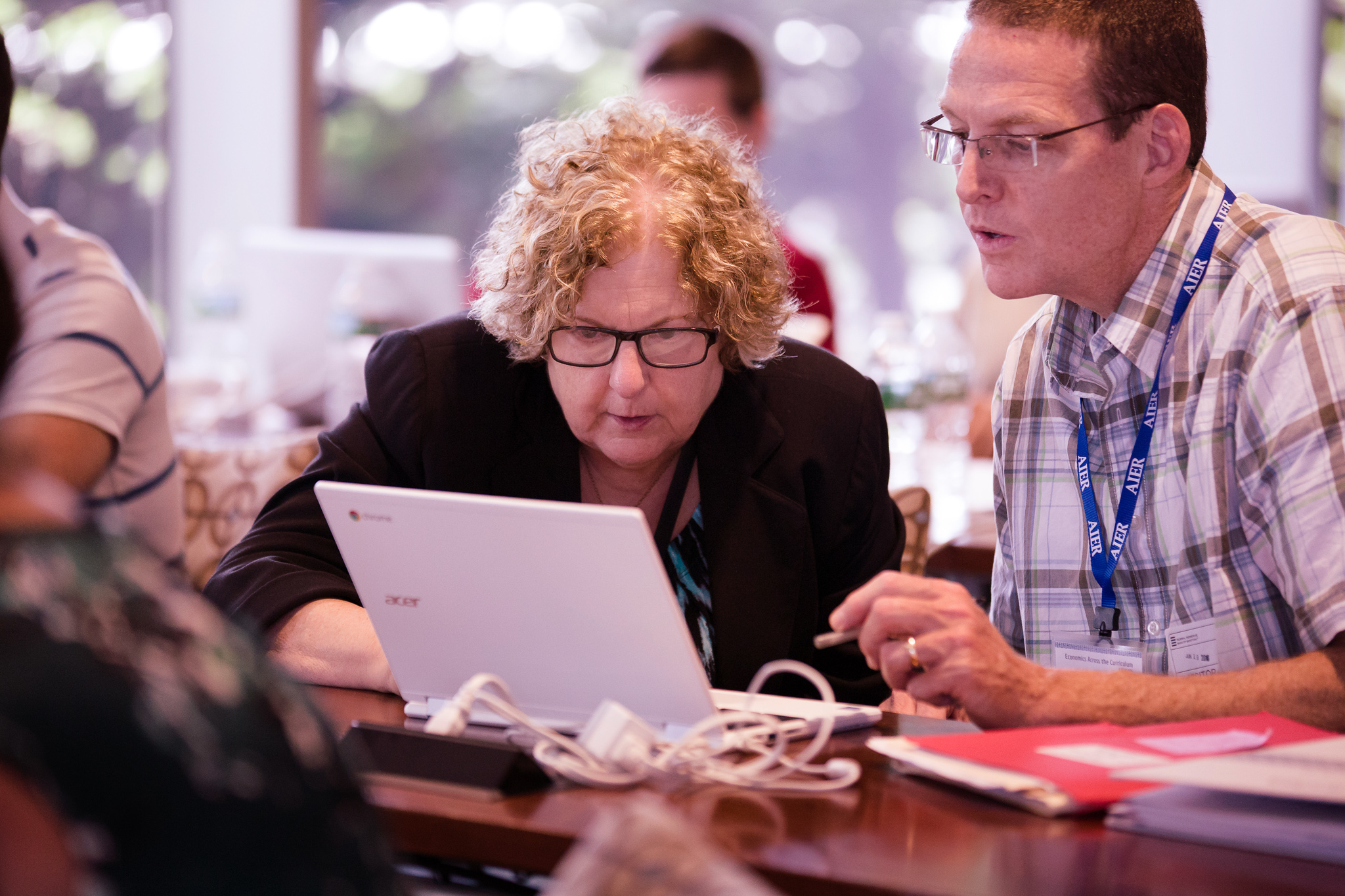AIER’s Teach-the-Teachers Initiative: Collaborative
As I continue to analyze how AIER’s Teach-the-Teachers Initiative complies with the criteria for the exemplary professional development outlined in the Every Student Succeeds Act, or ESSA, the Massachusetts Department of Elementary and Secondary Education released for public comment a plan to implement ESSA. I see that “strengthening educator preparation programs” and “promoting educator development” are two of the first goals that are listed in this plan. Our TTI program is, therefore, fulfilling this need. We had 44 teachers from Massachusetts participating last year in TTI in Boston, and we are planning to return to Boston area again in 2018.
Meanwhile, I continue to explore each criterion of an exemplary professional development program analyzed in the recent report, “Bridging the Gap: Paving the Pathway from Current Practice to Exemplary Professional Learning,” published by the Frontline Research and Learning Institute.
The first criterion is sustained learning. I described in a previous blog how TTI satisfies it. The second criterion is intensity. I examined how TTI satisfied this criterion in another blog. Today I would like to concentrate on the third criterion, which is collaboration. To be truly collaborative, the professional development workshop should “involve multiple educators, coaches or set of participants grappling with the same concept or practice and in which participants work together to achieve shared understanding.”
How does AIER’s TTI program fulfill this criterion? First, our presenters are a diverse group of educators. For example, our topic on Money and Inflation includes a presentation on the structure and functions of the Federal Reserve System, which is usually delivered by a representative of the Federal Reserve Bank at the workshop’s location. The lesson on unemployment is usually demonstrated by a national expert on economic education from the regional Council on Economic Education or a nearby university. Additionally, I present alternative measures of inflation, unemployment, and business cycles, which have been developed by AIER though 85 years of working on these topics.
The collaborative nature of the TTI is confirmed by another distinctive feature. After each topic is demonstrated and discussed, we provide time for participants to discuss how this topic exposition can be used in their field of study and within their curriculum constraints. The teachers use these time blocks to contest the concept or practice, share war stories, and develop their own ideas of lesson implementation. At the conclusion of the workshop, each participant is required to present their lesson idea at an open forum. Our experts are charged with giving structured and detailed feedback on the idea, and peers ask questions and offer suggestions. This system of closing the feedback loop works very well to ensure teacher learning outcomes.
Here is what teachers said in their evaluations:
- “This workshop, as I hoped, helped me to gain strategies and collaborate with other teachers in efforts to integrate more economics into curriculum.”
- “Not only did I find this workshop to be very educational, but I met a lot of other adults in the same line of work. I found that I learned a lot just from this fantastic opportunity to speak with others that share similar passion for what I love to teach.”
- “The lesson sharing was by far my favorite because I got so many ideas for implementing many topics into my class and seeing how teachers would incorporate the resources we learned in their actual class. Some were small little ideas and some were ideas that made me think about changing around the focus of an entire unit.”
Based on the discussion above as well as on additional teachers’ comments, we can say that AIER’s Teach-the-Teachers workshops are collaborative, satisfying the third criterion of successful professional development workshop.
Picture: Participants at AIER’s Teach-the-Teachers workshop in Boston in June 2016. Photo by Leah LaRiccia.
Click here to sign up for the Daily Economy weekly digest!









